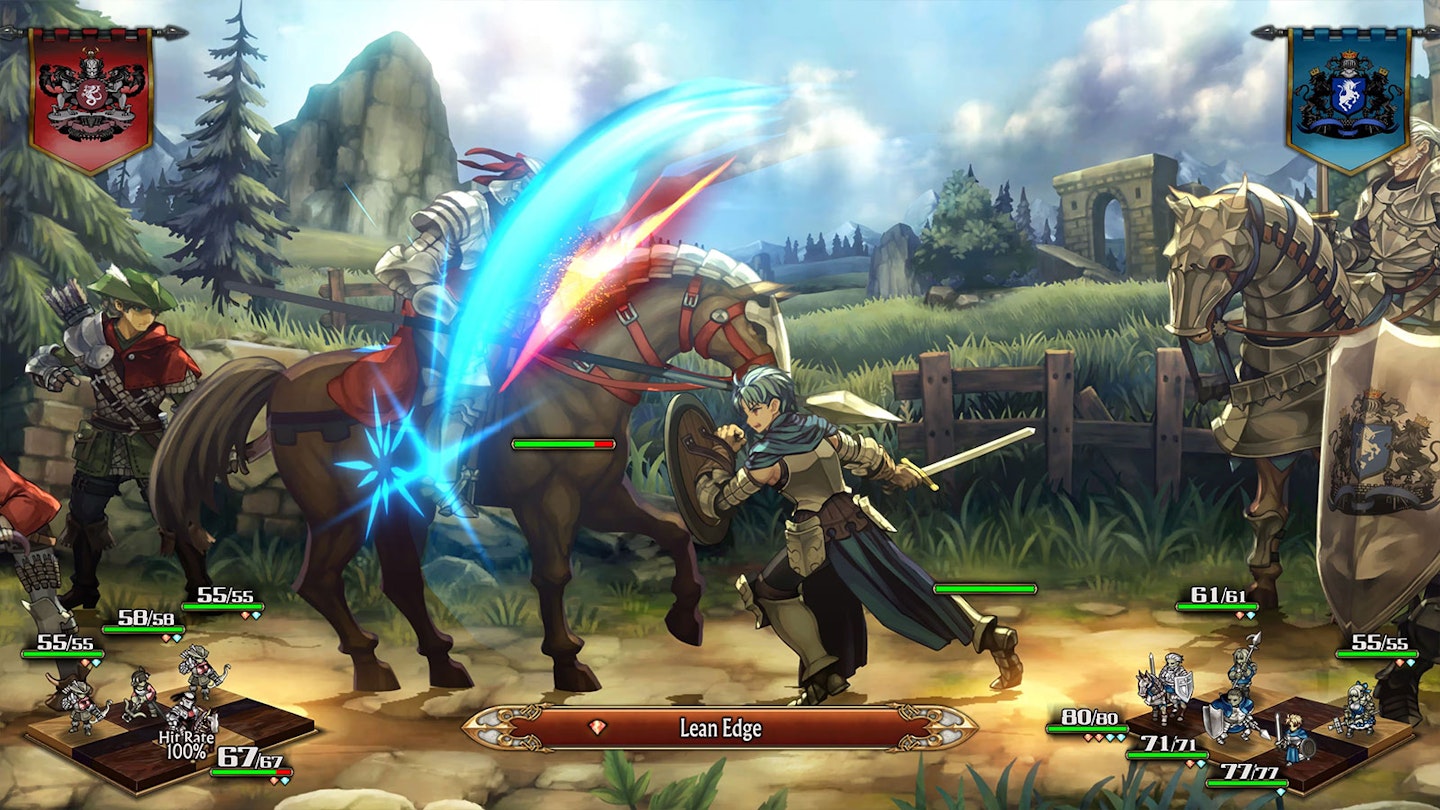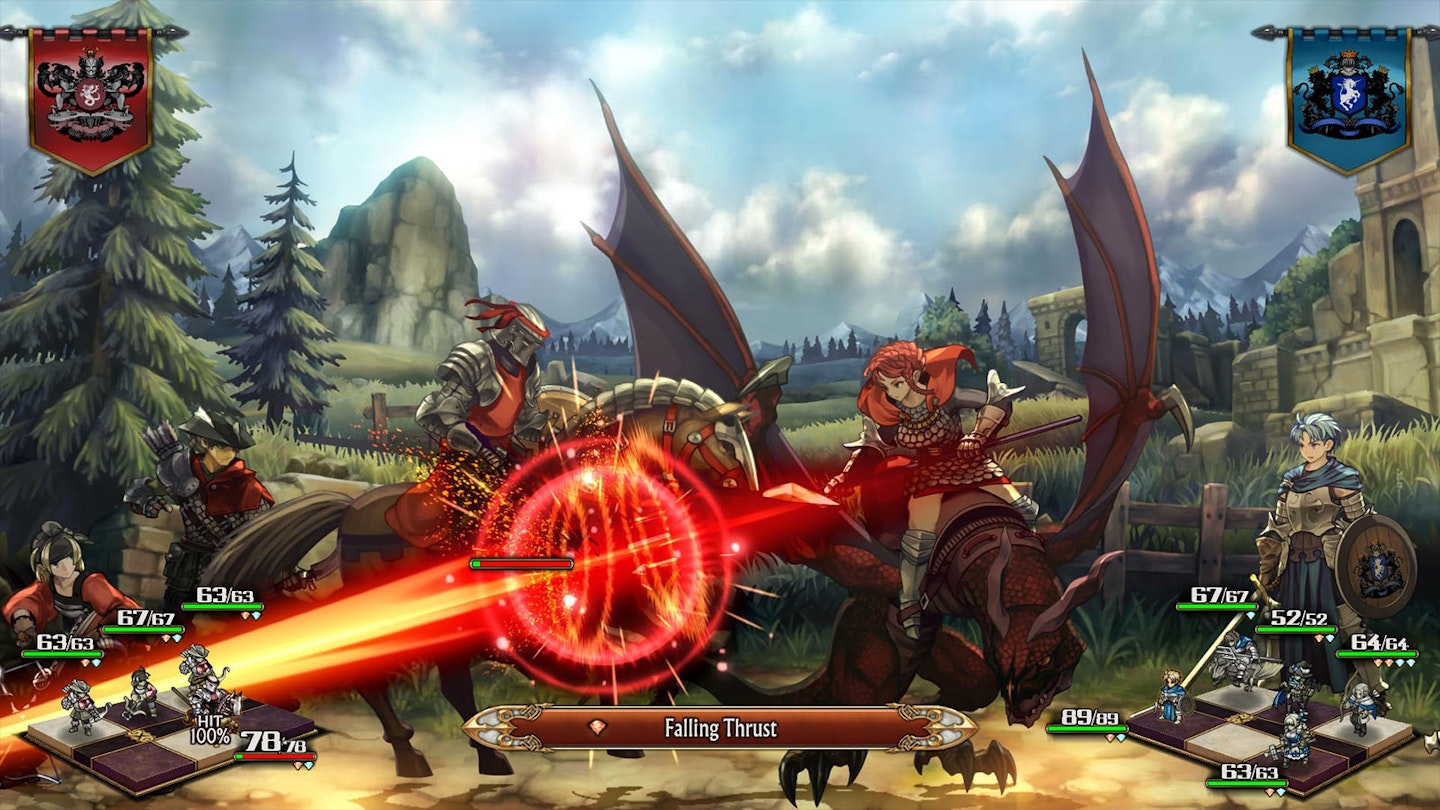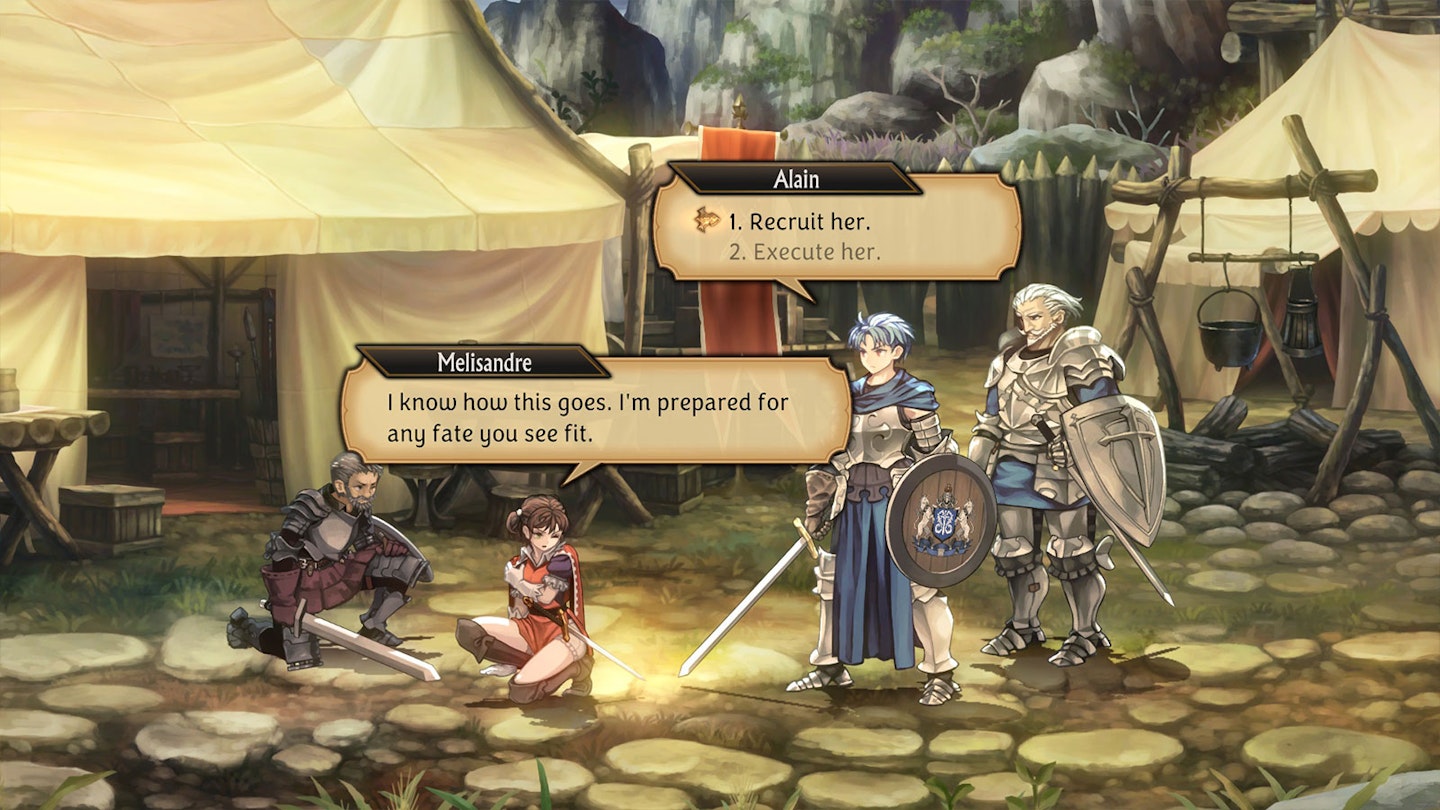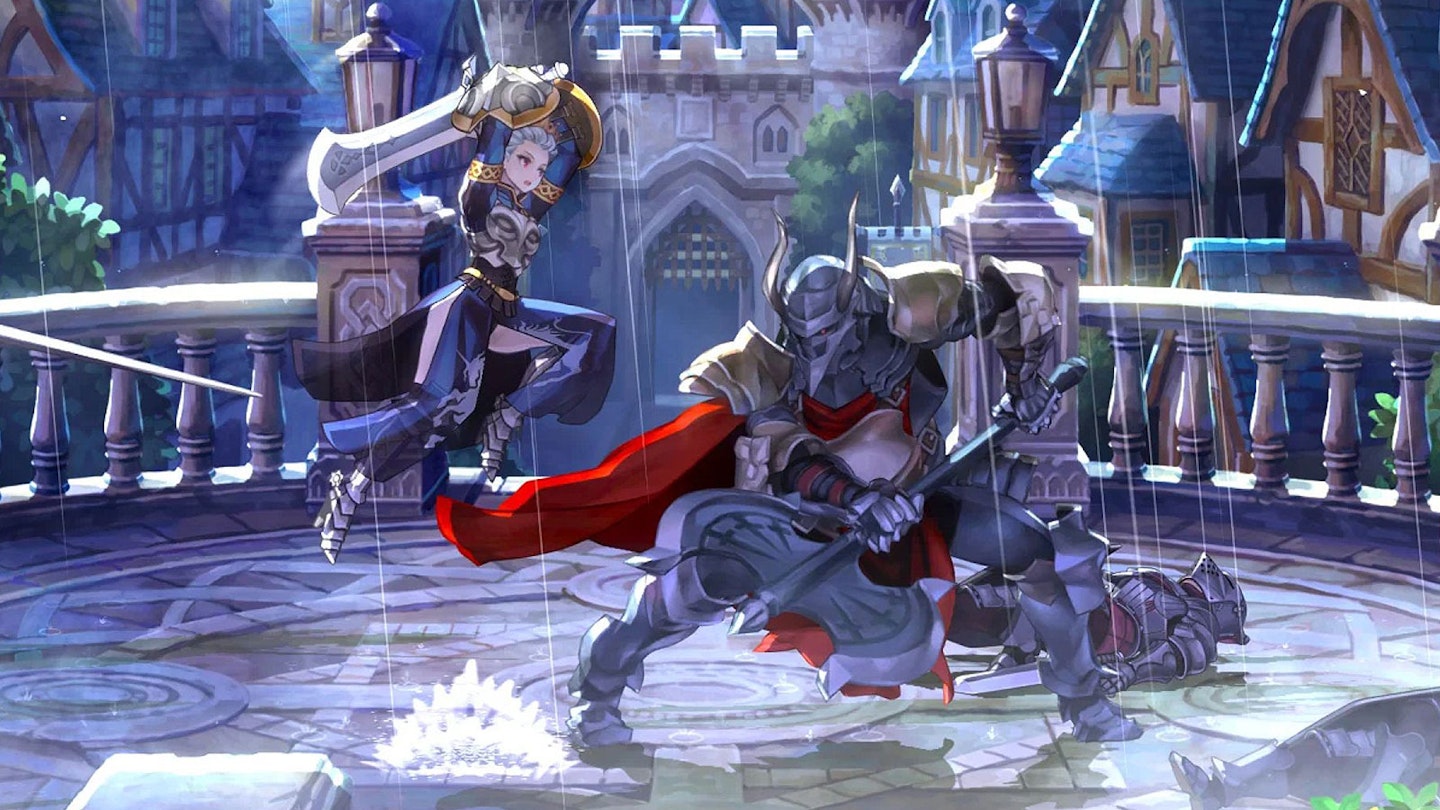Platforms: PS5, PS4, Xbox Series X|S, Nintendo Switch
At a glance, you'd be forgiven for thinking Unicorn Overlord was something of a Fire Emblem clone – both throw players into a medieval fantasy world, tasking them with saving a fallen kingdom through a series of tactical battles, recruiting warriors to the cause as you progress. Even protagonist Alain, with his blue hair and genre-typical armour, looks like he could be a cousin of Fire Emblem's iconic hero Marth.
And there's no denying that the plot feels a bit Fire Emblem-y too: exiled Prince Alain and his rapidly growing forces wander the continent of Fevrith – where his mother, the former Queen Ilenia, was deposed by her once-trusted General Galerius years earlier – liberating villages, and building a Liberation Army to reclaim the throne.

Look closer though, and this latest outing from Vanillaware – a developer that's spent years quietly creating a library of much-loved classics, from action RPG Odin Sphere to time-twisting adventure 13 Sentinels: Aegis Rim – proves itself one of the most impressive strategy titles in years, with an identity all its own. For one, that cookie-cutter story proves to have unexpected depths to it, packing in plenty of twists before the credits roll – but the biggest differences are found in combat.
It's not just the richly satisfying battles that make Unicorn Overlord great, though – it's how absorbing a world Vanillaware has crafted here.
Firstly, although there are dozens of compelling characters out to aid the cause, each with a unique range of skills, abilities, and weaknesses determined by their class, you're not commanding each one individually. Instead, you'll group them into units of, eventually, up to six fighters, and issue commands to that unit as a whole. There's a frankly ludicrous degree of strategizing to experiment with on unit composition alone – do you build squads around specific strengths, tailored to exploit enemy weaknesses? Do you sacrifice specific talents to create all-rounder teams in an effort to mitigate anything they might encounter? Is it worth risking building a unit with high mobility to dash across battle maps faster, even though their high speed is often offset by lower defence, leaving them vulnerable?

That last one highlights Unicorn Overlord's biggest difference from Fire Emblem – this is a real-time strategy title, rather than a turn-based one. Battles take place on cordoned off sections of the same world map you'll explore between rounds of combat, and typically involve progressing from Alain's base in one corner to the enemy's in the other, capturing it by defeating its commander. When two units meet, they'll engage in an automated battle, with damage dealt or taken determined by the combined stats and abilities of each unit's members.
Along the way to the enemy command post, you can defeat and take control of smaller facilities – which is where high mobility can come in useful, reaching them sooner and fortifying the map for your allies – and earn Valor Points, which can be spent to dispatch more units to bolster your forces, or to activate a specific character's unique skills, which might heal a friend, deal bonus damage, or enact countless other tide-turning effects. Thankfully, the ability to pause the real-time flow and line up order for units to follow before setting them on their way again prevents everything from getting too overwhelming.

It might still sound horrendously complex – and later in the game, when you're trying to juggle multiple units across vast maps, it absolutely can be – but Unicorn Overlord does a masterful job of easing players in to its more elaborate systems. Initially, each of your units can only accommodate two characters – for instance, a shield-bearing Hoplite on the front row to soak up damage, while defending the physically frail but magically powerful Wizard you've placed on the back row. That keeps things a little closer to the "one character, one unit" basis of most turn-based strategies, while giving players plenty of space to get to get to grips with how abilities combine. And while those automated battles may seem overly simplistic to start with, as you become more familiar with the game's systems of checks and balances, of which classes overpower or fall victim to which others in a hideously complicated rock-paper-scissors chain, you'll start gaining the confidence to adjust the skills of individual characters within a unit to change who gets healed and when, or under what circumstances a particular attack is used. After a few hours, you'll be swapping unit members around before each battle, fine tuning their battle actions to perfection, and tailoring your response to each encounter – and loving every second.
It's not just the richly satisfying battles that make Unicorn Overlord great, though – it's how absorbing a world Vanillaware has crafted here. Every core, named character (as opposed to generic mercenaries that can be created at barracks to buff up ranks – useful if you really like a particular class and want more of them in battle) feels wonderfully developed, with smartly penned backstories that reveal more about the state of Fevrith in the years Alain was in exile. Sometimes these are revealed in the process of adding them to your number, other times through affinity conversations unlocked by having characters serve in the same unit long enough, but always adding depth and sympathy to what becomes a voluminous cast.
With everything wrapped in Vanillaware's now-signature hand-crafted aesthetic, a gorgeous hybrid look falling somewhere between anime and paper cut-out puppets, Unicorn Overlord manages to combine its numerous influences into something that feels, if not new, then definitely greater than the sum of its parts. A highlight of its genre!
